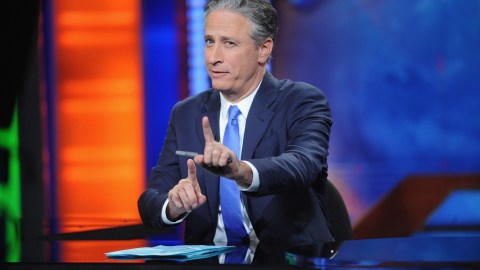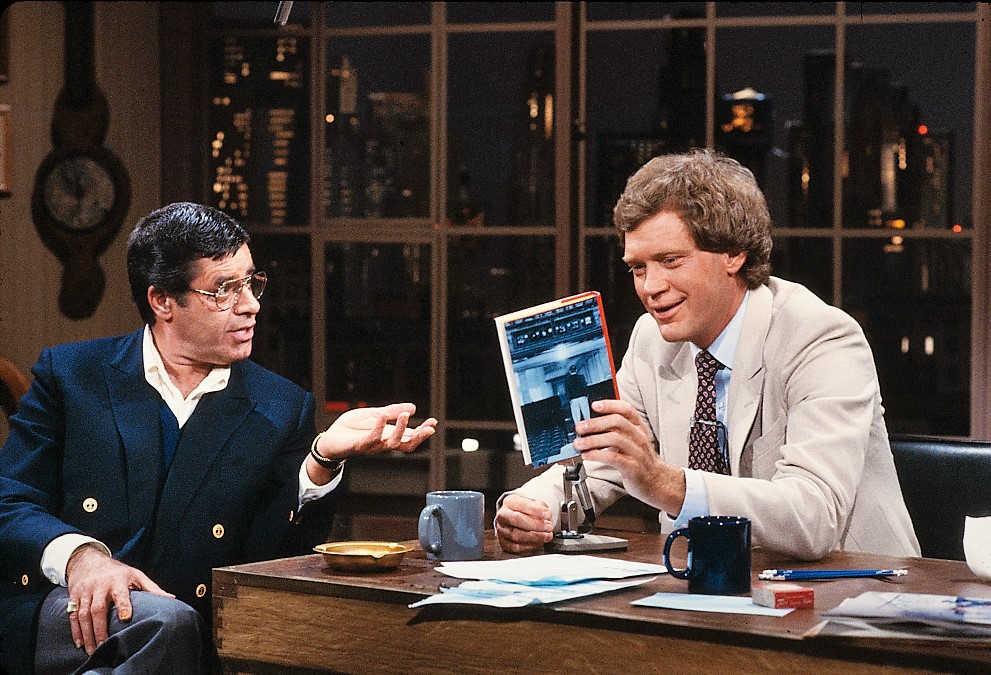Study: Jon Stewart leaving ‘Daily Show’ helped Trump win presidency

(Photo by Brad Barket/Getty Images for Comedy Central)
- A new study used Comedy Central ratings and political survey data to examine whether the departure of Jon Stewart from “The Daily Show” had a causal effect on the outcome of the 2016 presidential election.
- The researchers found that it had a 1.1 percent effect on voter turnout, an amount that could’ve proved decisive in such a narrow election.
- The researchers used causal language in the study, but cautioned that Stewart’s departure was one of many factors that decided the election.
Jon Stewart was once asked to describe his importance as a political commentator on The Daily Show. He replied: “On a scale of zero to 10, I’d go with a zero, not very important.”
That was dead wrong, according to a new study that suggests Stewart’s 2015 departure from the left-leaning show caused not only a drop in ratings, but also a slight drop in voter turnout in the 2016 presidential election – enough to tip the scales in favor of President Donald Trump.
It sounds like a wild claim. But study authors Ethan Portera and Thomas J. Wood pointed to past research showing that many Americans who aren’t politically engaged often consume news from comedy sources, in particular from “The Daily Show”. Other research shows that audiences are more likely to view political figures and issues in a more favorable light when presented in a comedic context, rather than, say, on a network news show. So, considering Jon Stewart’s replacement Trevor Noah has received lower ratings and fewer viewers, it stands to reason that some Americans were less inclined to get out and vote Democrat in 2016.
The researchers suggest Stewart’s key influence over the nation was to mobilize voters, not necessarily to make liberal converts out of conservatives.
“‘The Daily Show’s’ ratings decline was negatively associated with voter turnout — suggesting that Stewart’s role in the election is understood in relationship to mobilization, rather than persuasion.”
The study authors also examined Stephen Colbert’s departure from his eponymous show in 2014, finding similar but weaker effects. To conduct their analysis, the researchers used data from the 2016 Cooperative Congressional Election Study (CCES) and extensive ratings data for The Daily Show with Jon Stewart. The Daily Show with Trevor Noah, The Colbert Report, The Nightly Show with Larry Wilmore, Key and Peele, South Park, and Inside Amy Schumer.
Using a ‘difference in differences’ statistical approach, the analysis incorporated socioeconomic controls – including educational attainment, racial composition, and income — and also controlled for the general decline of all Comedy Central shows during this period. The results showed that only The Daily Show seemed to have influenced voter behavior in the 2016 presidential election.
“By our estimate, the ratings decline at The Daily Show was associated with a 1.11 percentage point increase in Republican presidential vote share at the county level, significant by conventional standards,” adding that the observations “cannot be explained away by broader trends in cable and Comedy Central.”

Credit: Wood & Portera
It seems a small but influential share of Stewart’s audience might’ve been a decisive factor in the election.
“… as previous studies have shown, the viewers Stewart and Colbert most affected were otherwise politically disengaged and uninformed,” the researchers wrote. “As Zaller (2004) demonstrates, such voters are precisely the most likely voters to shift partisan allegiances between presidential elections. When the shows’ ratings declined and those viewers went elsewhere, their politics likely changed as a result.”
Although the study authors suggest that Jon Stewart’s departure was causal in the outcome of the 2016 election, they do note that it wasn’t the only factor.
“Stewart’s departure and the decline in ratings data, we contend, was one among many factors that possibly contributed to the surprising election result of 2016,” they wrote.
What about “The Colbert Report”?
Why did Colbert’s Comedy Central show not seem to have the same effects as Stewart’s?
One reason might be the peculiar mechanics of satire and parody. Audiences of The Colbert Report might have been able to enjoy the satire no matter their politics; Republicans might’ve been able to laugh at the tongue-in-cheek jokes delivered by Colbert’s hard-right character, while Democrats might’ve laughed because they felt “in” on the joke. Here’s how the study authors described it:
“While The Daily Show was unflappably sincere in its political and partisans commitments, The Colbert Report was entirely satirical,” the authors wrote. “Decoding the humor and parsing out the political content of the latter likely required a great deal more political sophistication than the former. Not watching The Colbert Report may have depressed one’s interest in politics generally; but not watching The Daily Show may have depressed one’s interest in supporting the Democratic Party, and opposing the Republican Party, specifically.”





